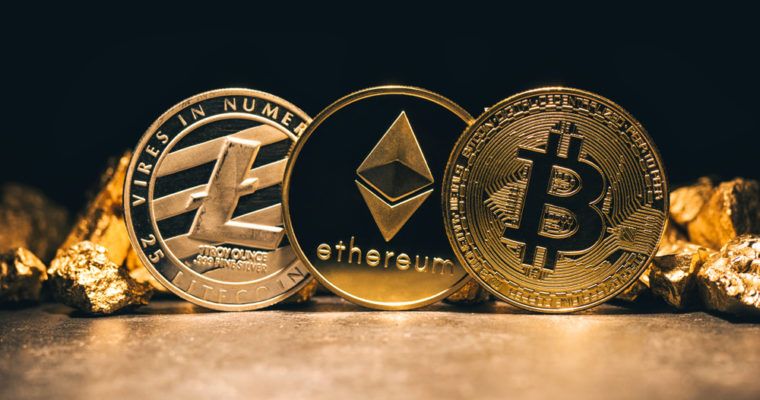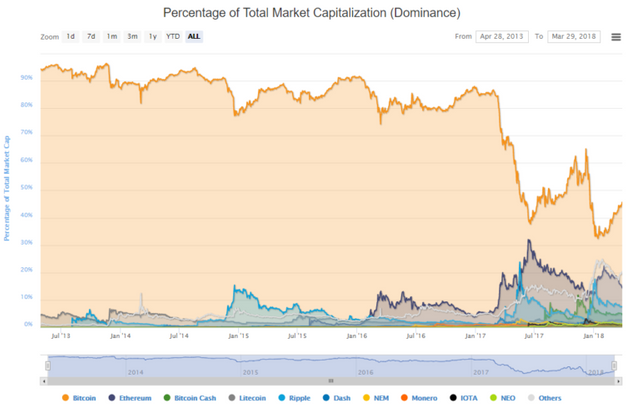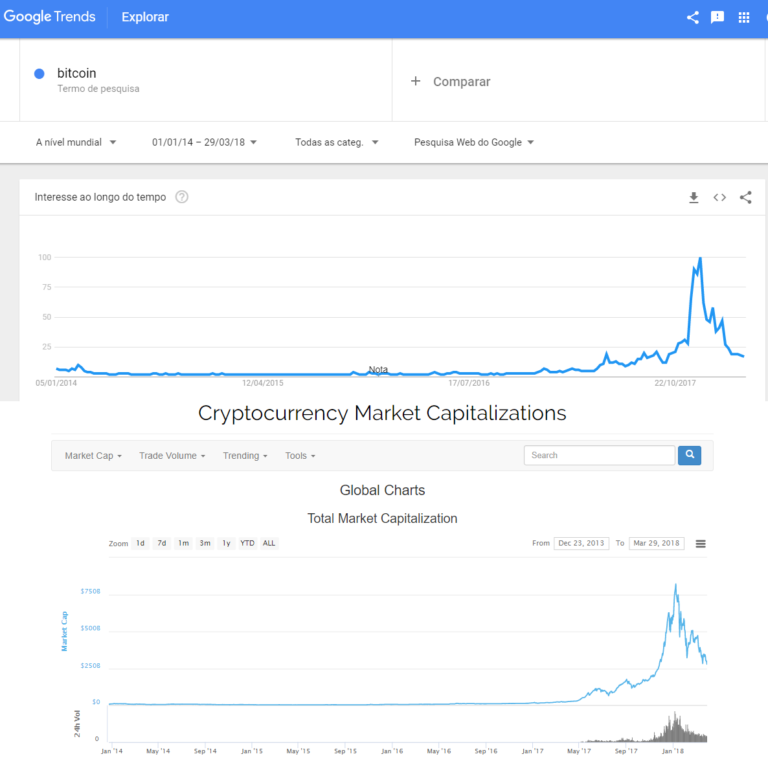Slump Begone: What’s Next For Cryptocurrencies? Tokens & Purpose

I know most of you are worried about price and the recent slump in the overall market valuation. Personally speaking, that does not concern me one bit as I believe this price and volume downfall is just temporary. As I mentioned before the market is no-where near maturity as the basis technology – distributed ledgers with economic incentives and applied game theory – has been created less than 10 years ago. I’m talking about Satoshi’s original vision.
–this article shouldn’t be taken as financial advisement as it represents my personal opinion and views. I have savings invested in cryptocurrency so take whatever I write with a grain of salt. Do not invest what you cannot afford to lose and always read as much as possible about a project before investing. You’re always responsible for your own money–
As of today, there are 1594 cryptocurrencies available at coinmarketcap and the total market valuation represents $274,954,590,832. At its peak in January the value was close to $800 billion, meaning it lost close to 75% of its total valuation. Another interesting point to make is that bitcoin, during this peak, lost most of its dominance shifting from a 84% dominance to a merely 36%; it’s now regaining traction as bitcoin market dominance currently sits at 45%.
 https://coinmarketcap.com/charts/
https://coinmarketcap.com/charts/
The only conclusion I can take from this data is that people got hyped and invested a lot during the peak. Smart-money (whales and institutional investors) started to convert back cryptocurrency into fiat, due to the overvaluation of the assets. The only thing people now need is a bit of patience. Will the market regain growth? A way to analyse information is by looking at the recent past, like the overall market value evolution or the interest of people in bitcoin. You’ll quickly see the cycles and notice something fairly obvious: like a sprinter’s beating heart as it reaches the finish line, price grows faster and gains momentum as new money enters the market, due to nothing but news. (traditional media is usually quite good at creating hypes, both positive and negative).
Do you see it? Whenever cryptocurrencies gain momentum, people’s interest in bitcoin increases exponentially. Meaning, the likelihood of new money coming into the market grows as the price of bitcoin grows. The opposite also happens, meaning the more the price drops, the less people are interested in bitcoin (breaking news: are we really just a bunch of money-hungry savages?! Stick around to find out)
As I wrote in the beginning, let us shift away from all this. I wanted to first share my view so that you could understand why I’m not worried one bit about price as I’m into cryptocurrency for the long-term, not because I’m simply mad.
Different tokens and their purpose
When we discuss cryptocurrency we’re usually talking about the entire space and most commonly there’s no differentiation between currencies, asset tokens and utility tokens. Due to regulation authorities, it’s important to differentiate between each type of token, as watchdogs are actively hunting down projects that show a lack of purpose, are seen as securities or just promise impossible high interest rates. If you’re familiar with this concept, I challenge you to still stick around, as I propose different ways of measuring tokens. Without further a due, let’s begin.
- Cryptocurrencies: as the name clearly states the purpose of these tokens is to be used as means of payment. Look at bitcoin, litecoin, monero or stellar for example. Each has a unique set of rules connected to their protocol which enables brand new features, like privacy, different hashing algorithms, rewards, economic incentives, validation mechanisms and even mining hardware. To me those are definitely features and not issues, as it’s impossible to predict which combination will allow for the best optimized system. So far bitcoin is leading the way, maybe because it was the very first cryptocurrency to be created, or because its combination of features actually makes it the best digital currency at the present time. In my opinion, it’s a mixture of both reasons; as we saw before people tend to look directly into bitcoin when they start their cryptocurrency journey, but at the same time no other cryptocurrency, rather than bitcoin, has won so many battles coming always on top. If you don’t agree, just think which coin is the most used at the moment. This means that until now, no other currency has proven to be as resilient, capable to scale and to maintain security as bitcoin has. Only time will tell which combination of factors will win. Some can even argue that those don’t matter at all and it’s all about branding, marketing and hype.
- Cryptoassets: an asset can be virtually anything like company shares, personal data, deeds, contracts, etc. These cryptoassets can be categorized as securities because they entitle holders to a revenue share (like dividends) or to interest payments (like a fixed interest rate). Obviously regulator watchdogs cannot allow this to happen, as for companies to publicly trade their equity they must fulfill a list of demands like KYC/AML compliance for example. Most will agree this makes sense, otherwise projects like bitconnect will keep scamming investors, or most projects could raise funds from illegal money, like drug trafficking. Except I don’t think this “heavy-hand” approach makes that much sense, for a simple reason: most illegal money is transacted via bank accounts. Meaning, rules and regulations are not the same to every financial agent that wants to compete in the market. If this is the case, as it happens to be, it makes no sense to impose regulation that only works for the small-fish, like me or my company for example. Want to better regulate the market? Teach people how to invest, how to spot harmful projects and crypto-based companies how to identify customers and how to avoid using illegal funding. If we’re trying to create a fairer, more transparent world, let’s at least try to create new regulation that can be better applied to everyone, with no exceptions (yes HSBC and JP Morgan, I’m talking to you).
- Utility tokens: these are tokens which do not entitle holders to anything, except for the right to participate in the network. Or at least that’s the broader definition I often read, which to me doesn’t really make sense. Let me rephrase, it does make sense although highly incomplete.Do you think there is utility in creating an extra layer of complexity? I seriously doubt it. There is utility, however, when you optimize your token to the network in question. If you’re building apps, it does make sense to create a token that can be used as a means of getting paid by doing some work, associated to a specific milestone, contract, code, whatever. For example Ethereum, Aragon and Clearpoll allow users to create decentralized organizations with voting rights (in the first two cases) or give users the right to submit news and to vote upon the veracity of those news. Siacoin, Substratum or Upfiring allow for people to decentralize their cloud computing requirements, as users can rent computer space to make some extra cash (in this case, tokens). To me that does seem like proper utility.
Should utility only be associated to the ability of using tokens on a certain network? What if you create tokens that actually entitle users to profit, but they’re given for free? This is, what if by using a platform you’re given tokens which entitle you to a share of company profits? How can you consider that to be a security if no money was invested? What about airdrops? What about bounties? I personally have no answer for all that. If you get tokens by sharing time, resources or data should you be taxed upon those gains? If so, how can people easily do the math and know when/how much to contribute to their own governments? I know some people, like Ivan On Tech or Andreas Antonopolous, are working to find solutions around these problems which will hopefully make all our lives easier. Right now there are new laws being created around data protection that could be rendered useless, if money is not bought but given away for free. By spending time or attention, sharing data or knowledge, creating content in any form you would be rewarded. Always.
Can you imagine a world where what matters is not money, but projects and goals? Anything you would do could compensate you for your time, in the form of tokens; and because tokens can be exchanged for any other asset, including cryptocurrency, liquidity could (maybe) not be a problem. Wouldn’t this be a kinda of UBI?
–Don’t forget, you should always research what tax regulation applies to cryptocurrency in your own country–
What about the economics around cryptocurrency?
I think it’s absolutely crucial to consider what cryptocurrency really is, how it really works and what it can really achieve. I’m talking, of course, about the true decentralization of power. Have you ever heard:
That’s because Money = Power. Think, who can create money? Governments and financial institutions. And what happens with the centralization of power? If you’ve been following my articles you already know my personal stance on the matter:
Cryptocurrency might be the first truly decentralized system that can actually give back power to the people. No single central institution or government has the ability to print money, so there’s no ability to control it. Oh boy, and people are indeed scared of that. Not the poor, tho, but the rich. The absolutely filthy rich are the ones truly worried about what will happen.
“What about ownership? What about control? What about damn regulation?!”
If you stick around for the next part I promise you won’t regret it. We’ll discuss regulation, the role of recent developments in cryptocurrency and, finally, the real distribution of power that could be achieved when people sway from fiat-currency. I tip my hat to Daniel Jefferies, an actual inspiration to write something about this topic.
We now have a chance to make this world a better place with cryptocurrencies if we take this opportunity to learn how the shift could happen from valuing things to valuing knowledge. From the moment we all have (more or less) the same access to money and it becomes decentralized, why would we value possession and ownership the same way? If we all don’t make an effort to at least try making the world a fairer place, don’t sit around waiting for things to change, as i can almost guarantee that whoever is truly rich and powerful will come down like thunder on cryptocurrencies.
Because why change what’s already pretty good? Creating money through debt seems to work just fine.
Featured image from Shutterstoc
Source :https://www.ccn.com/whats-next-for-cryptocurrencies-tokens-purpose/